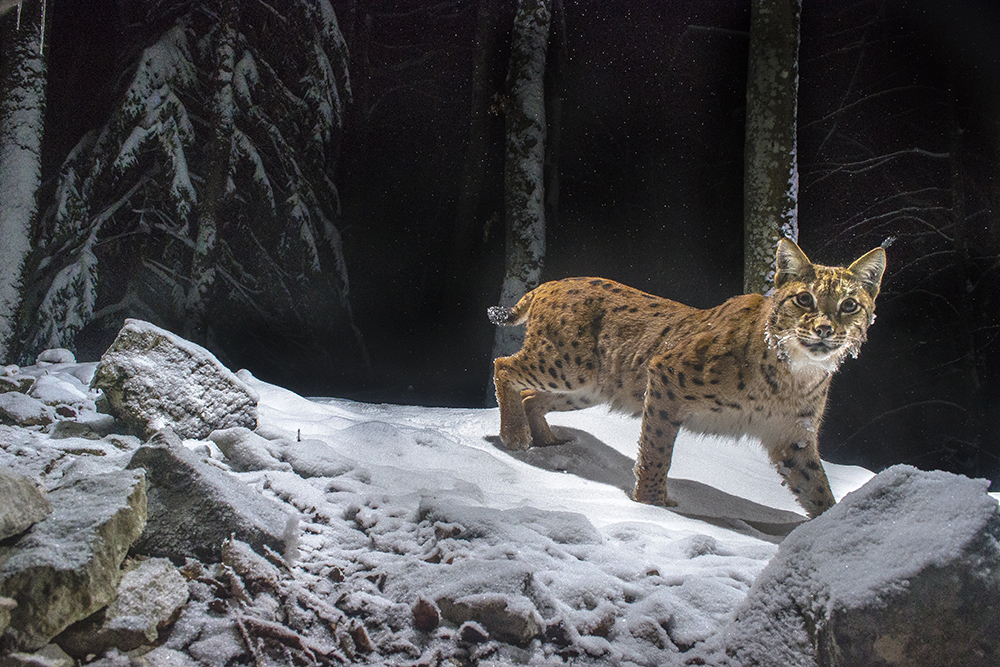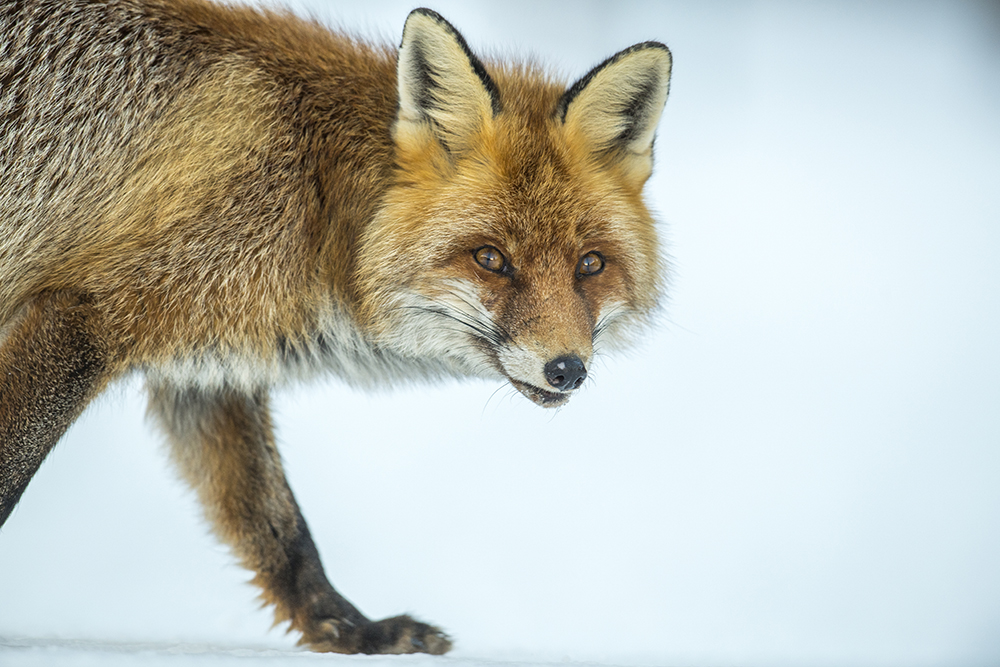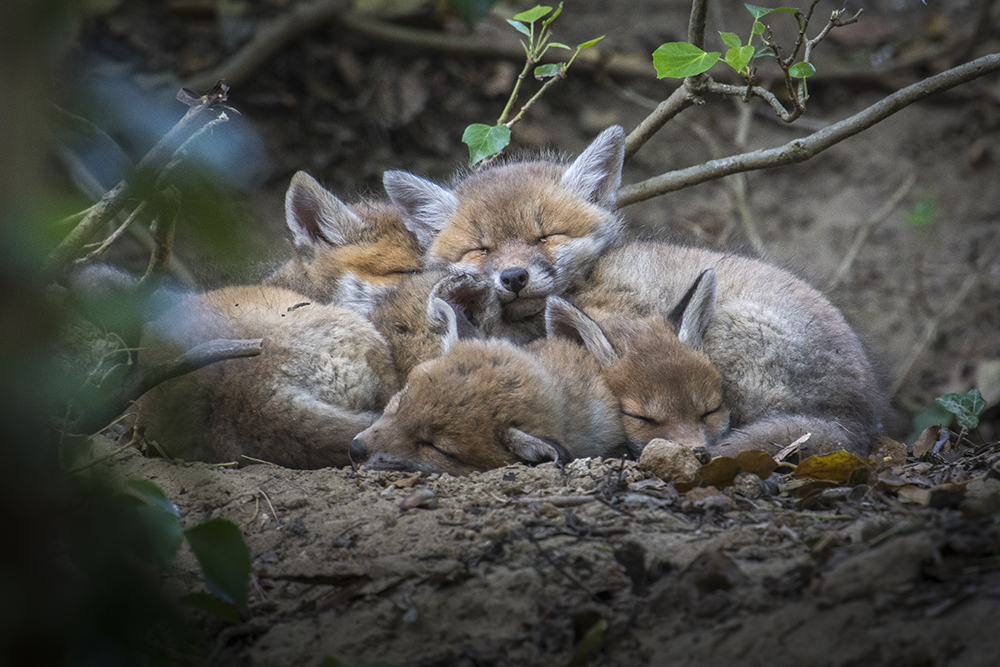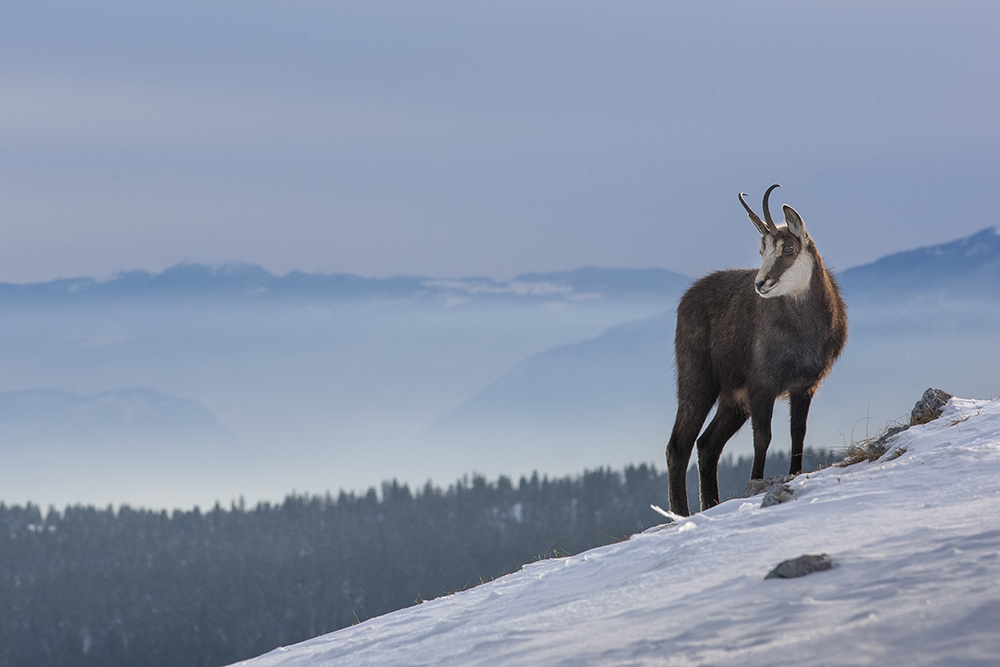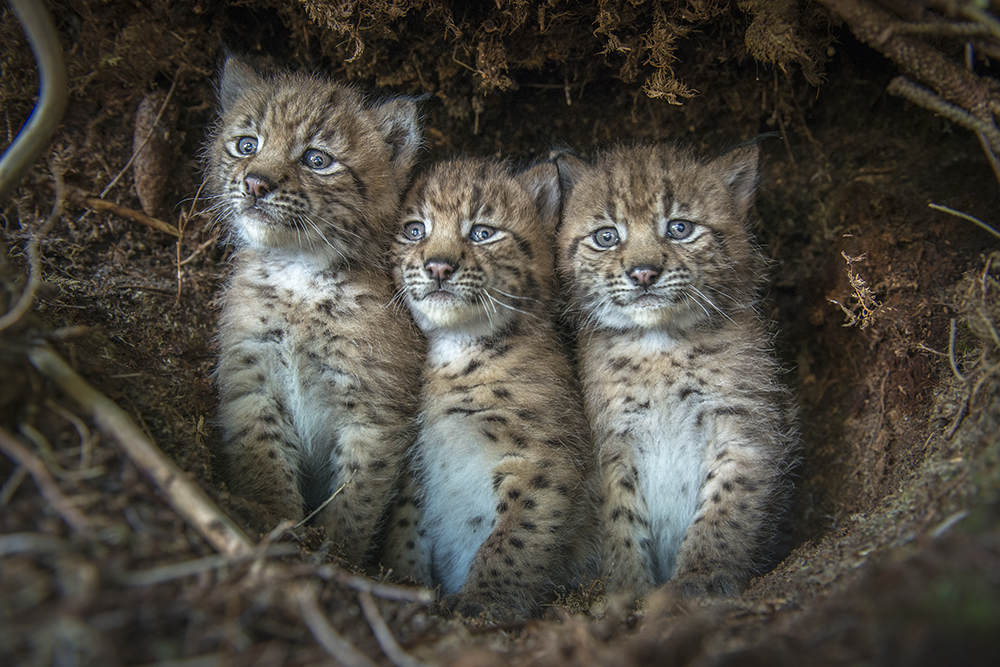Movies - Lynx : Interview with director Laurent Geslin
By Mulder, 13 january 2022
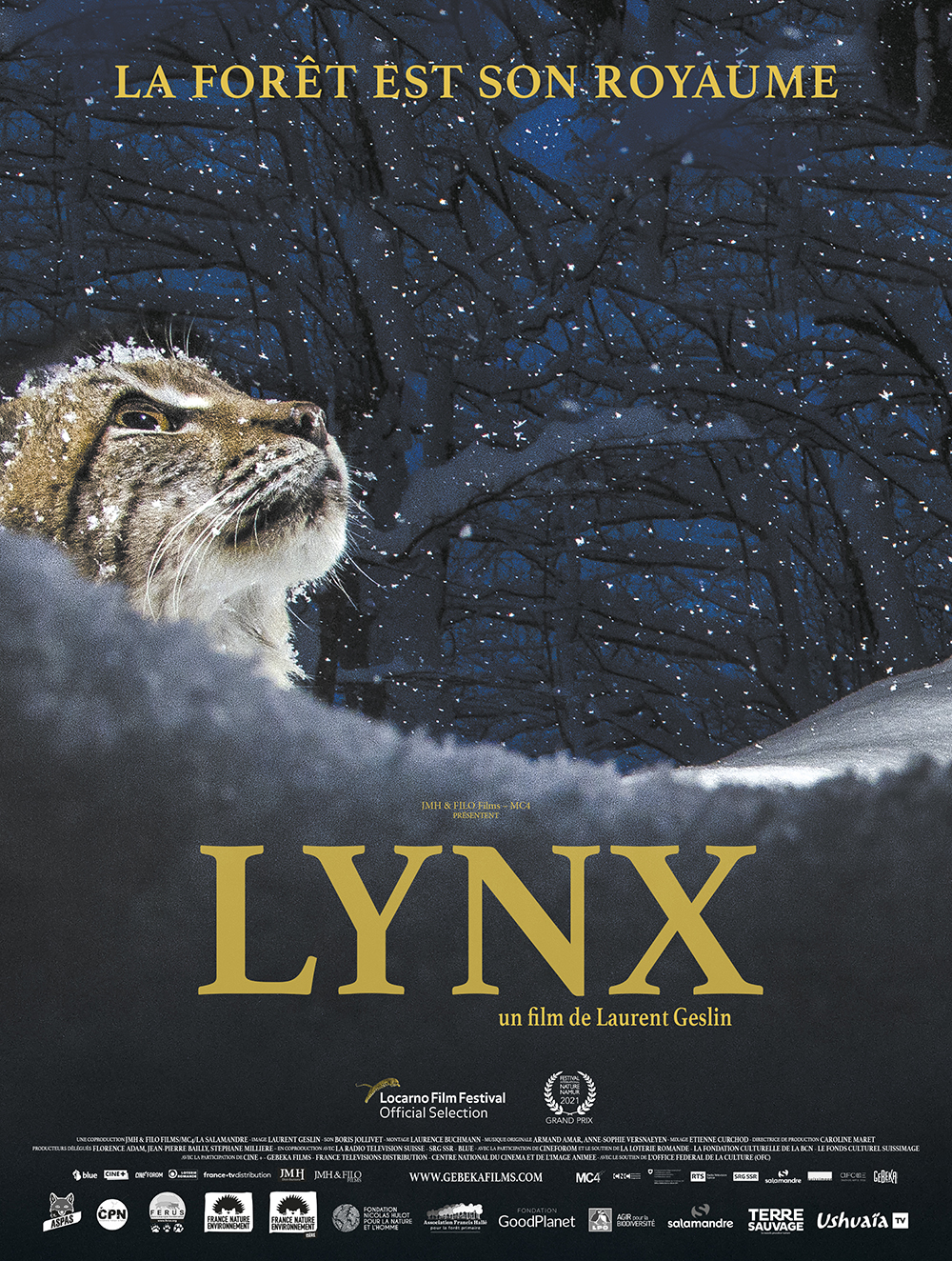
Lynx is a French-Swiss documentary film written and directed by Laurent Geslin that will be released on January 9th. It shows the life of a lynx family in the Jura mountains.
Q: Why this passion for the lynx ?
Laurent Geslin: I am fascinated by the world of living things in general. Even now, I can spend an incredible amount of time in front of an anthill, a herd of deer or observing large predators in an exotic country. I had the chance to travel to most of the national parks around the world and to photograph the big cats. When I arrived in Europe, my first concern was to observe this cat living in the mountains. It didn't make sense for me to go around the world in search of cat images when within five minutes of where I live, a splendid predator had almost never been filmed. Moreover, the lynx embodies a strong symbolism in our very anthropized society. It represents for me a kind of "success story". In the Jura, it is a large predator that has been reintroduced by humans to try to limit the damage of herbivores on the forest. And this plan worked. It represents the "soft" solution of a cohabitation between our world and the so-called "wild" world.
Q : Don't you have the same fascination for other wild animals, foxes, for example, that you have photographed a lot ?
Laurent Geslin : I don't have a preference among wild animals, they all fascinate me but I have always liked to show the public a close-up nature. My first book "Urban Safari" revealed the nature in our cities with an incredible biodiversity in the big cities of Europe. It is indeed at that time that I have worked a lot on foxes in the city. Working on animals takes more or less time because some are more difficult to film than others. Living in the heart of the lynx kingdom allowed me to look for it almost daily. It took me more than ten years of work for my photos and more than a year for the film and it is true that I developed a rather singular relationship with this feline.
Q : Why did you choose to make a film after having already made a book of photos ?
Laurent Geslin : It's another challenge! With film, I can tell stories that I had trouble telling with a camera. Filming means more complications, but by keeping my photographer's eye, I feel I can express myself more fully. The world of images evolves quickly, social networks show us thousands of photos every day. Making a film requires taking your time and that's also what appeals to me.
Q : What were the constraints of this shoot ?
Laurent Geslin : The major constraint of this shooting was to find the main character! The boreal lynx is normally largely nocturnal, and to my knowledge, it has never been filmed in its natural environment. There are lots of films about lions, cheetahs, jaguars and other big cats but not one about the lynx. The animal is of an incredible discretion. For my photographs, it happened that I did not see him for nearly eight months while I was looking for him daily. But over the years, I have gradually understood the behavior of some individuals; I opted for light equipment which greatly facilitates travel in the mountains when you have to follow an animal in the snow for six hours.
Q : How did you have to adapt your techniques as a wildlife photographer to switch to the camera ?
Laurent Geslin : Having to track, look for clues, hide and stay for hours or even days in a blind is a job that does not really differ between photography and film. On the other hand, if it only takes a few seconds and good reflexes to make a beautiful photo, building a cinematographic shot requires anticipation, fluidity and cold blood. Even physically, I don't move in quite the same way. It's a whole approach that almost suits me better. You rarely make a great image "on the fly" in film, but when you manage to "build" a shot, the emotion is really there.
Q : What were your objectives in writing this story ?
Laurent Geslin : The story in this film really existed. All the scenes, from the most touching to the most dramatic, I really lived them but spread out over a different chronology. I wanted to gather my years of experience and anecdotes to tell the life of a single lynx. The story is therefore scripted but with a truthful background. I did not want to invent a story that was not credible, nor did I want to fall into anthropomorphism. I never wanted to give names to the lynxes I tracked, the "wild" doesn't deserve that and yet by following the same individuals, I wanted the public to realize that each animal has its own personality. This is what I have discovered throughout these years.
Q: Why did you specify that the film was made with completely wild animals in their natural environment ?
Laurent Geslin : Most of the animals in the films are trained animals. They were born in captivity and will never enjoy the freedom of wild animals. The general public is not necessarily aware of this and thinks that the
The general public doesn't necessarily know this and thinks that the images were shot in the wild, when in reality, there is a team of fifty people behind the camera. The images in my film are not in slow motion, there is no lynx jumping over my camera or sniffing my pants. I hope the audience will feel that these images are truly authentic and that it took years to achieve this result.
Q : What would you like the audience to remember about your film ?
Laurent Geslin : I would like above all to reinforce the awareness that nature is a complex chain of multiple links and that if one of them disappears, nature is unbalanced. The lynx is an indispensable link in our environment. It is a large predator and like all predators, it is the only one able to "contain" the population of certain ruminants such as roe deer and chamois. When there is no predator in a forest, roe deer and chamois can indeed create great damage on young trees and shoots trees and young shoots. This considerably hinders the rejuvenation of the forest. The forest engineers who work in my region tell me that the lynx is the "keystone" of the forest.
Synopsis:
In the heart of the Jura Mountains, a strange call resounds at the end of winter. The superb silhouette of a boreal lynx creeps among the beech and fir trees. He calls his female. By following the life of this couple and their kittens, we discover a world that is close to us and yet unknown... An authentic story in which chamois, eagles, foxes and ermines are the witnesses of the secret life of the biggest feline of Europe which remains threatened... A film to discover the essential role that this discreet predator occupies in our forests, the balance that it has restored in a fragile environment but also the difficulties it encounters in a landscape largely occupied by humans.
Lynx
Written and directed by Laurent Geslin
Produced by Jean Pierre Bailly, Stéphane Millière
Music: Armand Amar, Anne-Sophie Versnaeyen
Cinematography : Laurent Geslin
Editing : Laurence Buchmann
Production companies: MC4 productions, Radio télévision Suisse (RTS), Jmh & Filo films
Distributed by Gebeka films (France)
Release date: January 19, 2022 (France)
Running time: 84 minutes
(Source: press kit)


